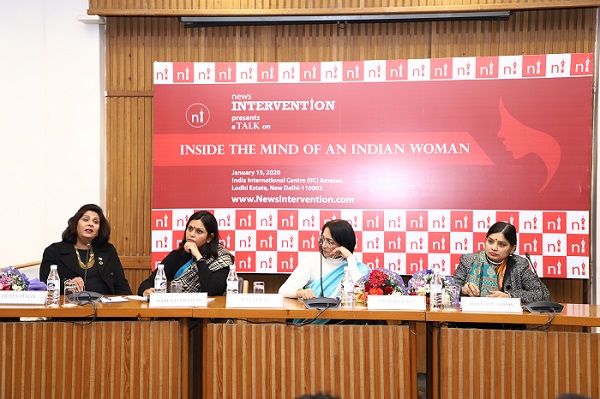
After covering economy and finance for over 20 years, when Vivek Sinha, Editor of News Intervention asked me to moderate a session on women I was not only reluctant but also nervous. The topic –“Inside the Mind of an Indian Woman” was as intriguing with a sterling panel- Padma Shri and Khel Ratna awardee Deepa Malik, former IPS officer and now a social activist Prabha Rao and Dr Bijayalaxmi Nanda, Principal of Miranda House, a top women’s college in Delhi University.
Nonetheless I accepted the challenge and the close-to-two hour session on Wednesday, January 15, was one of the most enriching experiences.
It couldn’t have been a better platform for learning and unlearning– touching upon a wide spectrum of issues including women trafficking, patriarchy, top-down approach in policy making, safety, menstrual hygiene, handling rape cases and justice, especially in context of the “Nirbhaya” gang rape incident and trust deficit between the police and people at large.
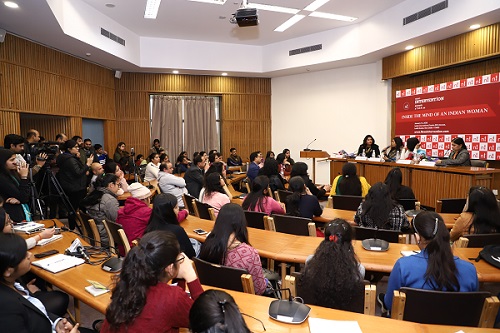
In a country where on an average 90 rape cases are reported every day with a sharp rise in women trafficking and pornography viewing, it is time we looked at advocacy and dialogue with relevant stakeholders.
As Dr Nanda put it that rarely is the Indian woman’s mind celebrated, the focus has typically been on her body. What was shocking was Malik’s painful revelation that an eminent ad-film maker once told her that nobody would be interested in seeing her in product endorsements. Reason? Her age and disability.
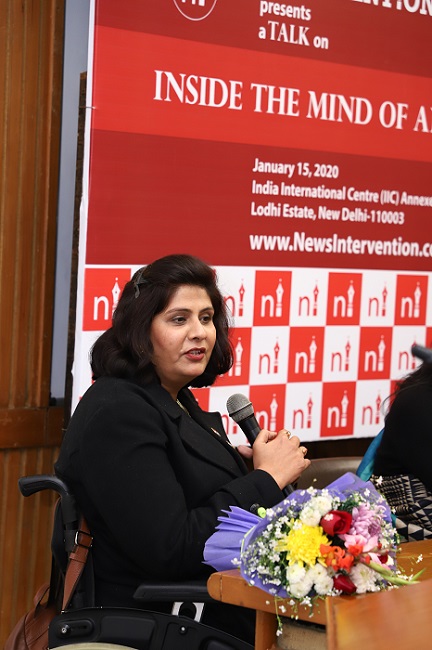
In fact Dr Nanda, who has worked in areas of selective abortion and human rights added that congenital abnormality in the Indian society even today meant being a female. As the author of several books, she further added that the obsession to have a male child was not just a rural phenomenon, the urban and prosperous middle class too suffer from the same trait.
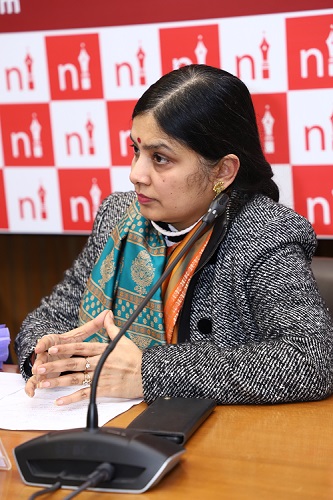
Are we then making the cardinal mistake of framing laws and chalking out rules without even understanding what the over 90% of the Indian women and even men want? Have we even given them a patient hearing? No, we haven’t.
How much importance does the government accord to the ministry of women and child development?
Prabha Rao, who runs an NGO — Encourage India, which helps in empowering and rehabilitating rural women and victims of trafficking, pointed out that in the pecking order the women and child development ministry is nowhere in the top.
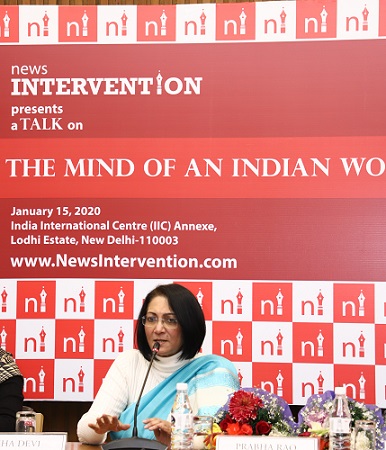
Recounting her experience, Prabha Rao underlined the need to focus on menstrual health. She explained that after the issue was brought up, sanitary pads were randomly distributed in the rural areas. Rao noted how sanitary napkins were thrusted upon women without even consulting them. Without proper disposal facilities in the rural areas, these pads with scattered plastic sheets occupied the landfill where cows ate them creating more menace and eventually turning into breeding grounds for dengue and other germs.
Prabha Rao underlined the need to focus on the quality of primary education. In India, anyone who can read and write even without any basic knowledge of any other relevant subject is considered literate. This creates problems in job creation, Rao opined.
Needless to say, safety and delayed justice must be another priority area without doubt. India must act on this. It is shameful that a chunk of money from the Nirbhaya Fund goes unutilised, Rao pointed out.
Asha Devi, women rights activist and “Nirbhaya’s” mother, who was slated to join the panel but eventually could not due to pressing court matters relating to the on-going rape case, in an interview with Vivek Sinha said how the delayed justice and closure to the case was leading to an erosion of trust on the legal system and this could further spruce instances like the much-debated Hyderabad encounter. Asha Devi has been almost single-handedly fighting for justice for her daughter for the last seven years.
Malik’s endless arduous struggle with her illness and extraordinary achievements is nothing less than an epic. However, she confessed that the Nirbhaya rape case was so disturbing that as a mother, she lost her never-say-die spirit to restrict her daughters from venturing out.
In fact, Malik pointed out that lack of safety for girls was one of the prime reasons for them not taking up sports as a profession.
While there is no dearth of government schemes and legal provisions on women’s safety and protection, there is little awareness on the ground.
What is urgently required is a mechanism to create awareness among the masses, dialogues and consultations with women in the remotest areas and also allow those who are actively involved in the Panchayats to be heard and understood.
While a section of the society has spoken against patriarchy, it continues to flourish. Dr Nanda, interestingly, pointed out that patriarchy not only has impacted women, it has impacted men too. After all the society demands men not to cry, not to be sensitive, they can only play the role of protectors.
After all, if we need to glorify a man for his contribution for bringing changes in menstrual habits as we saw in the Akshay Kumar starrer Padman, we are sub-consciously promoting patriarchy.
This needs to change.
